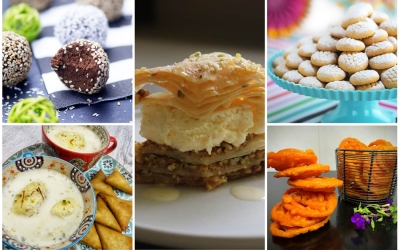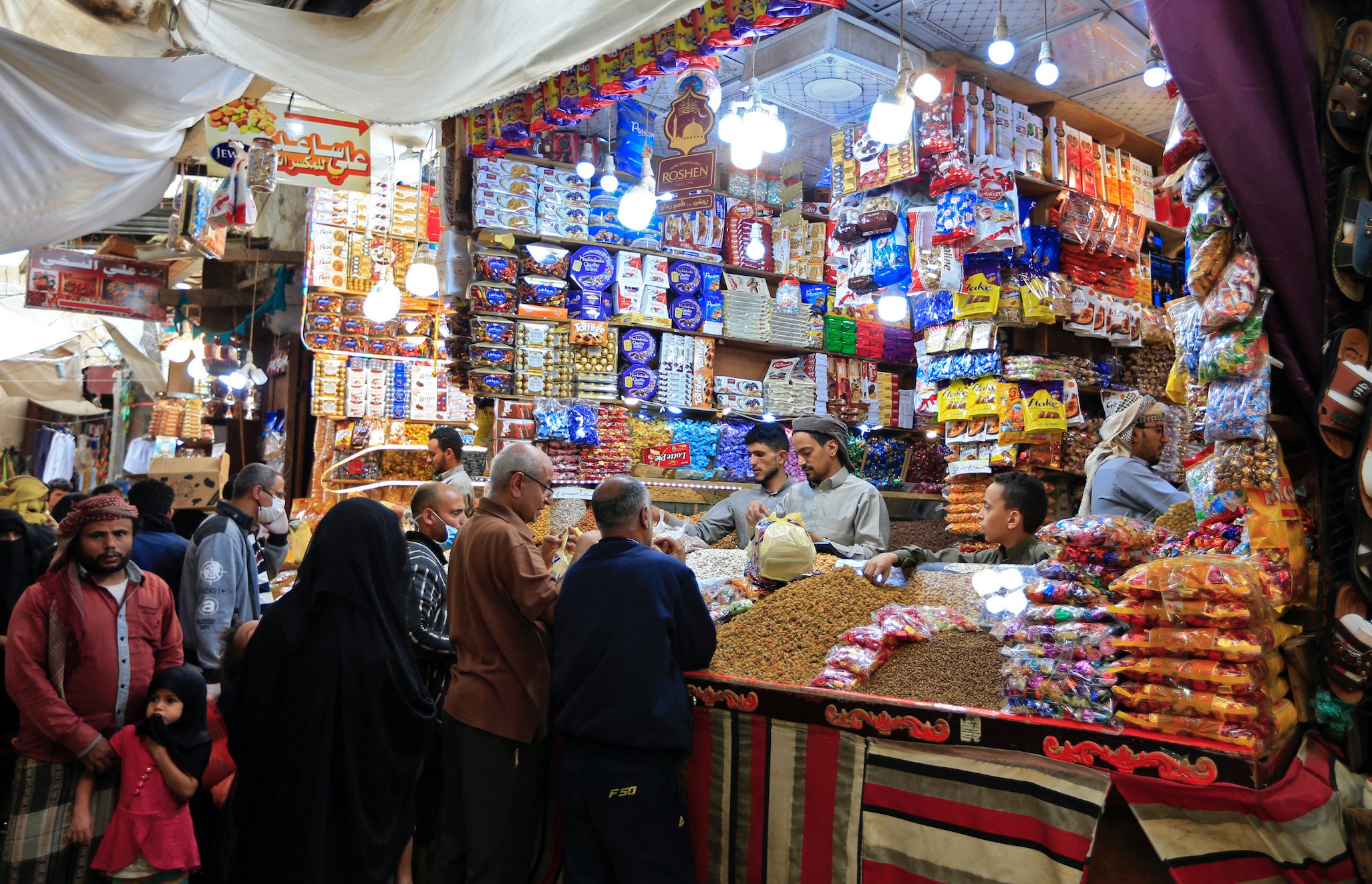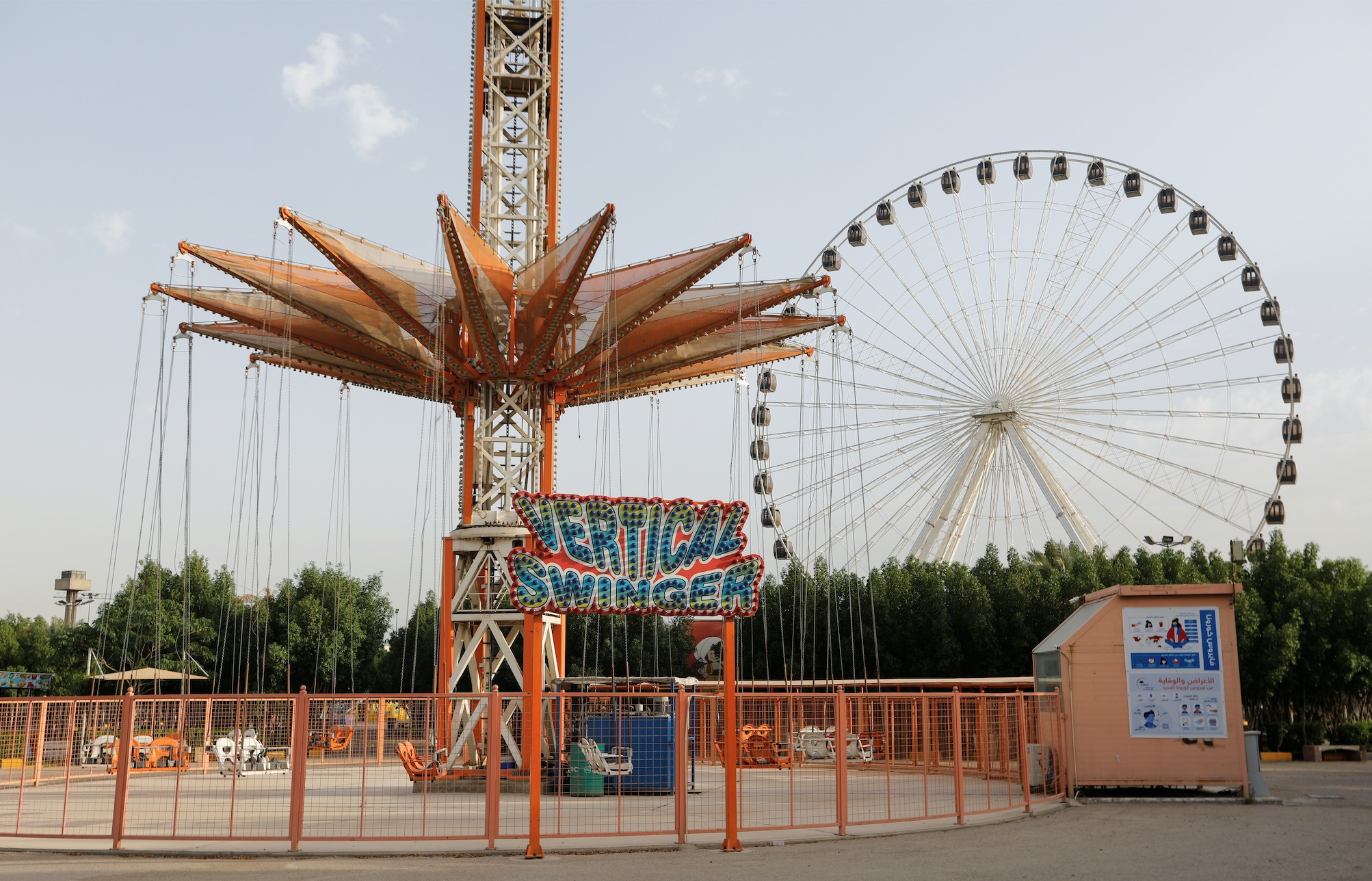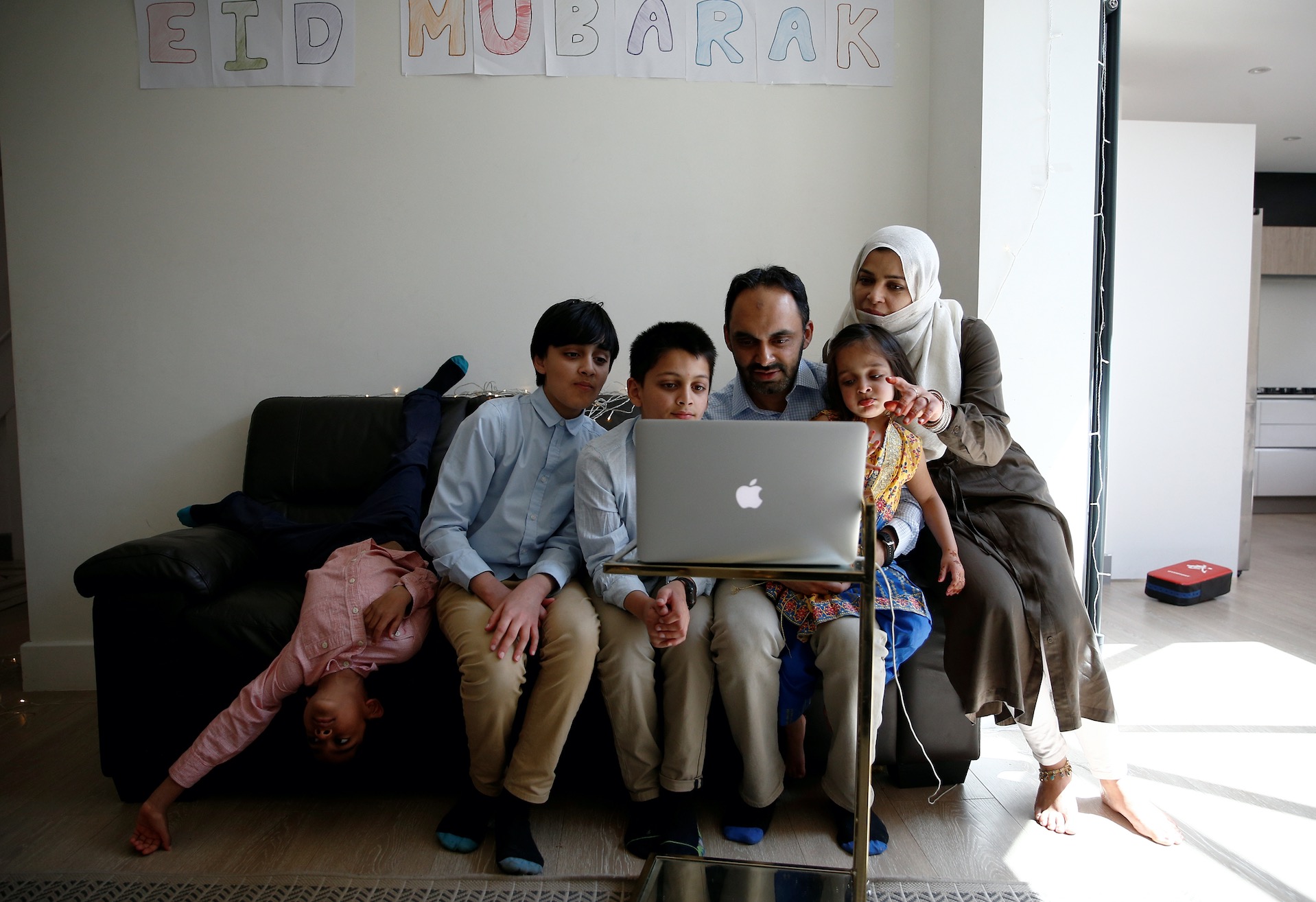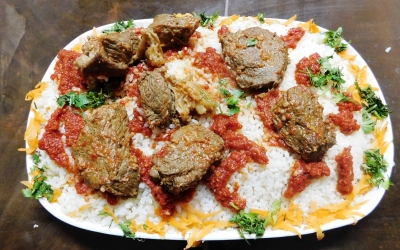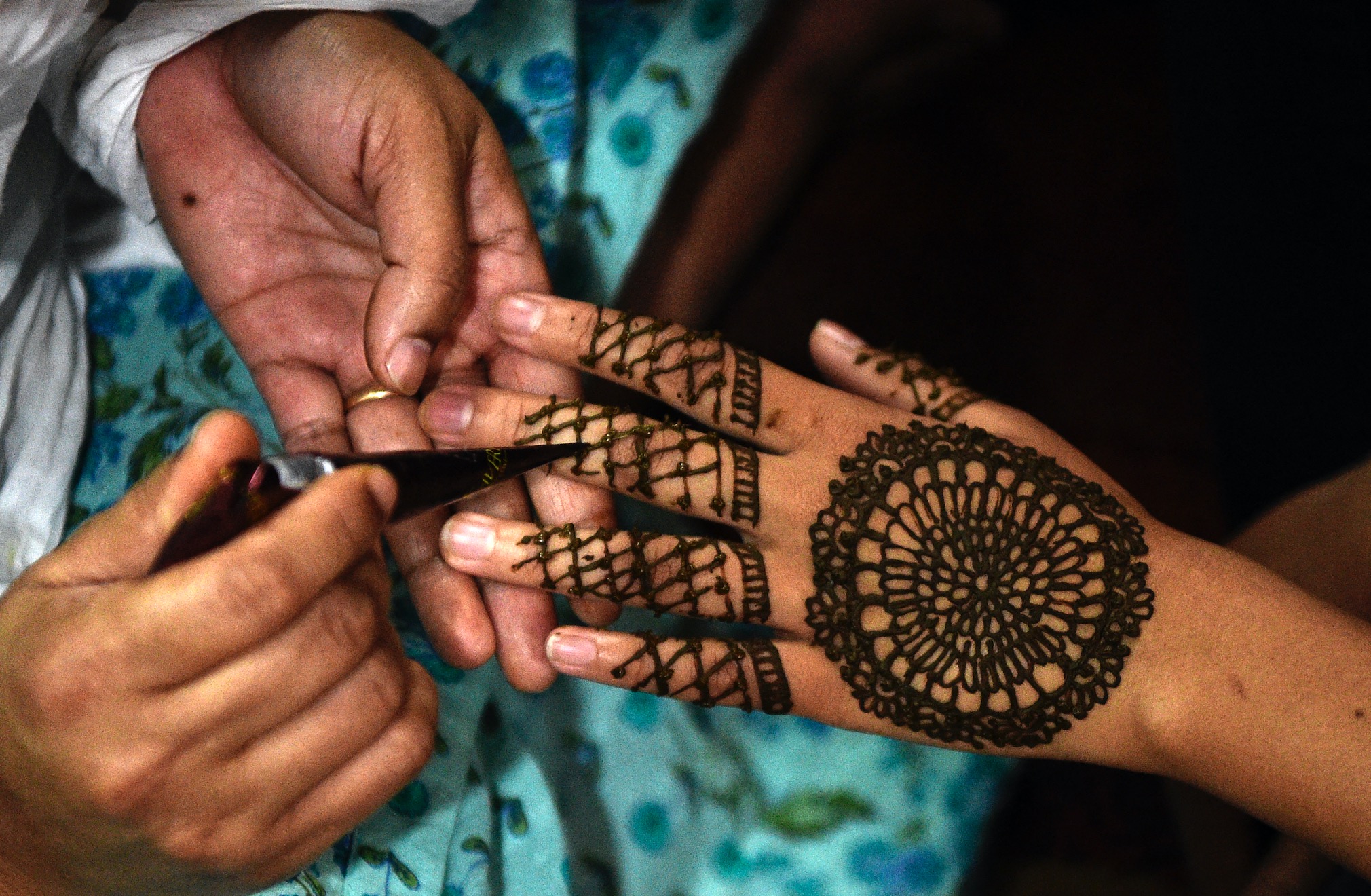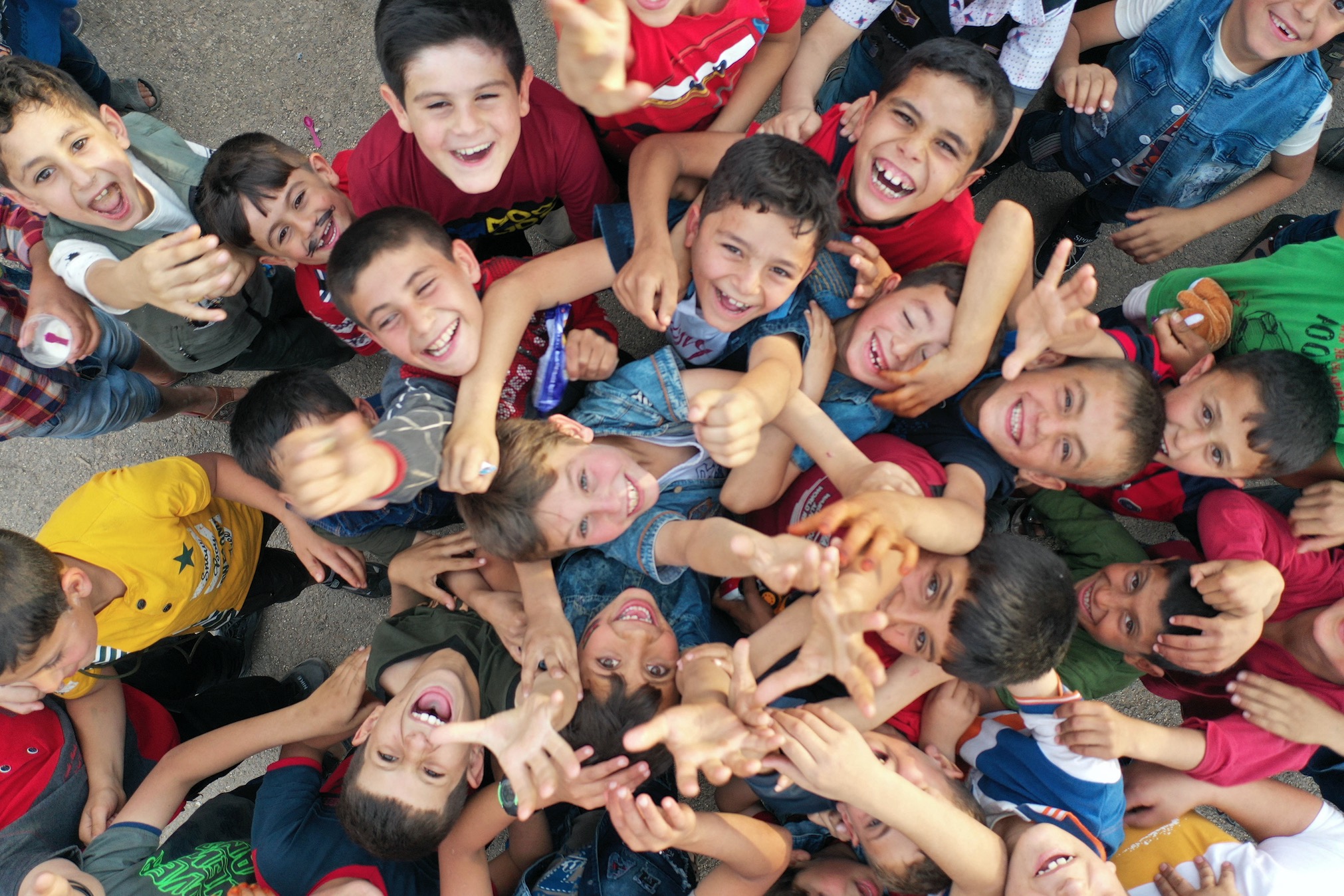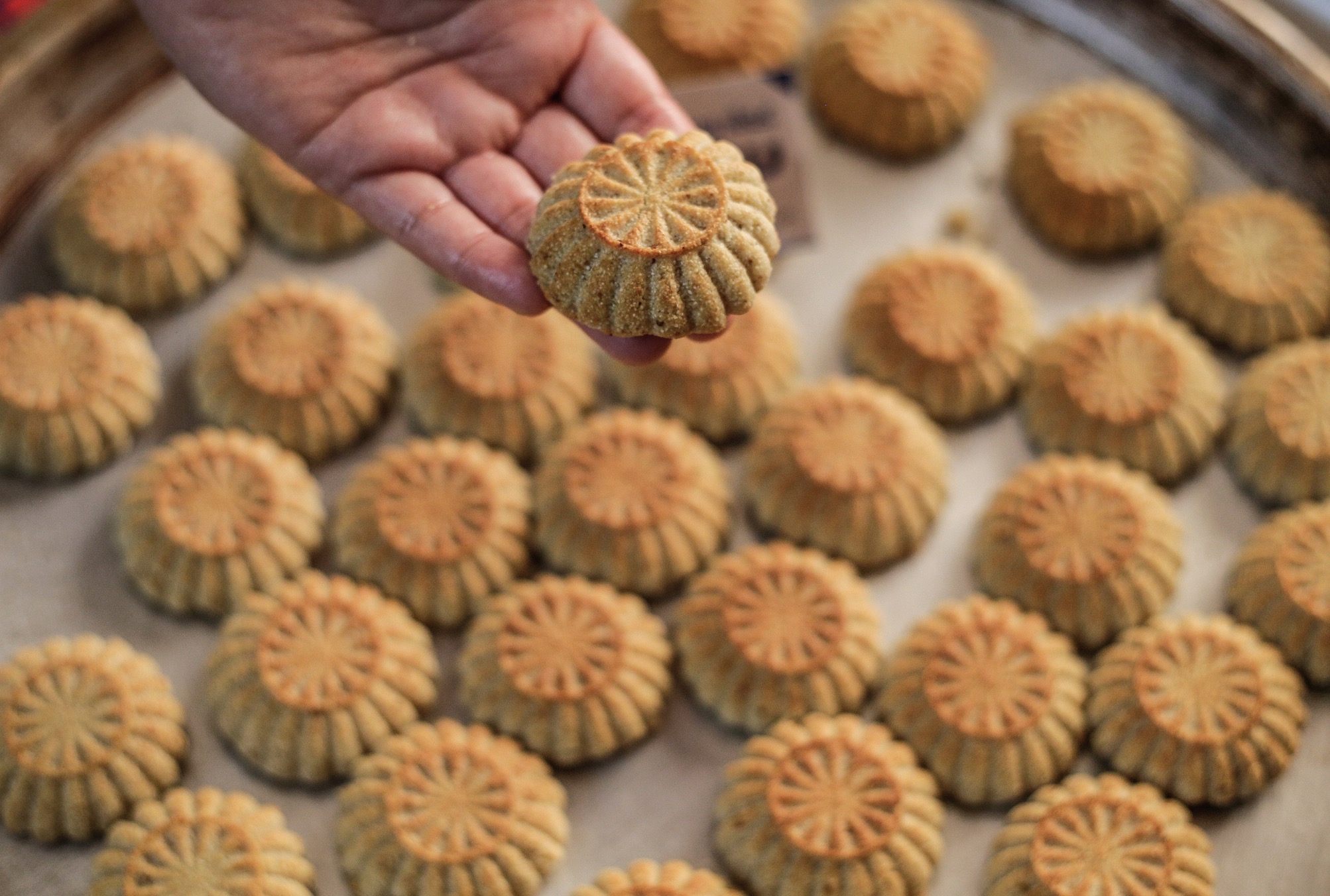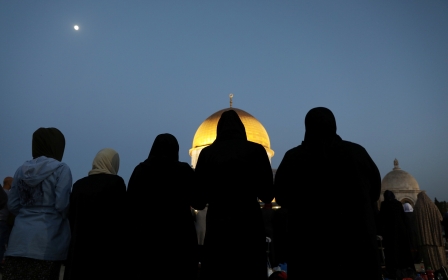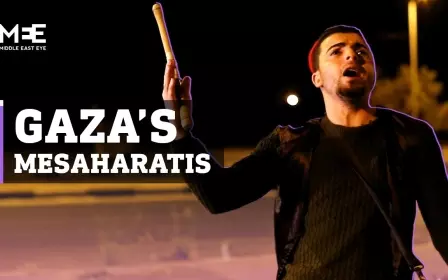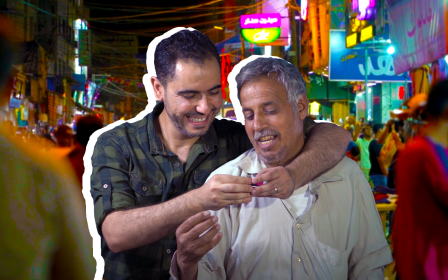Eid al-Fitr 2021: Everything you need to know about the celebration
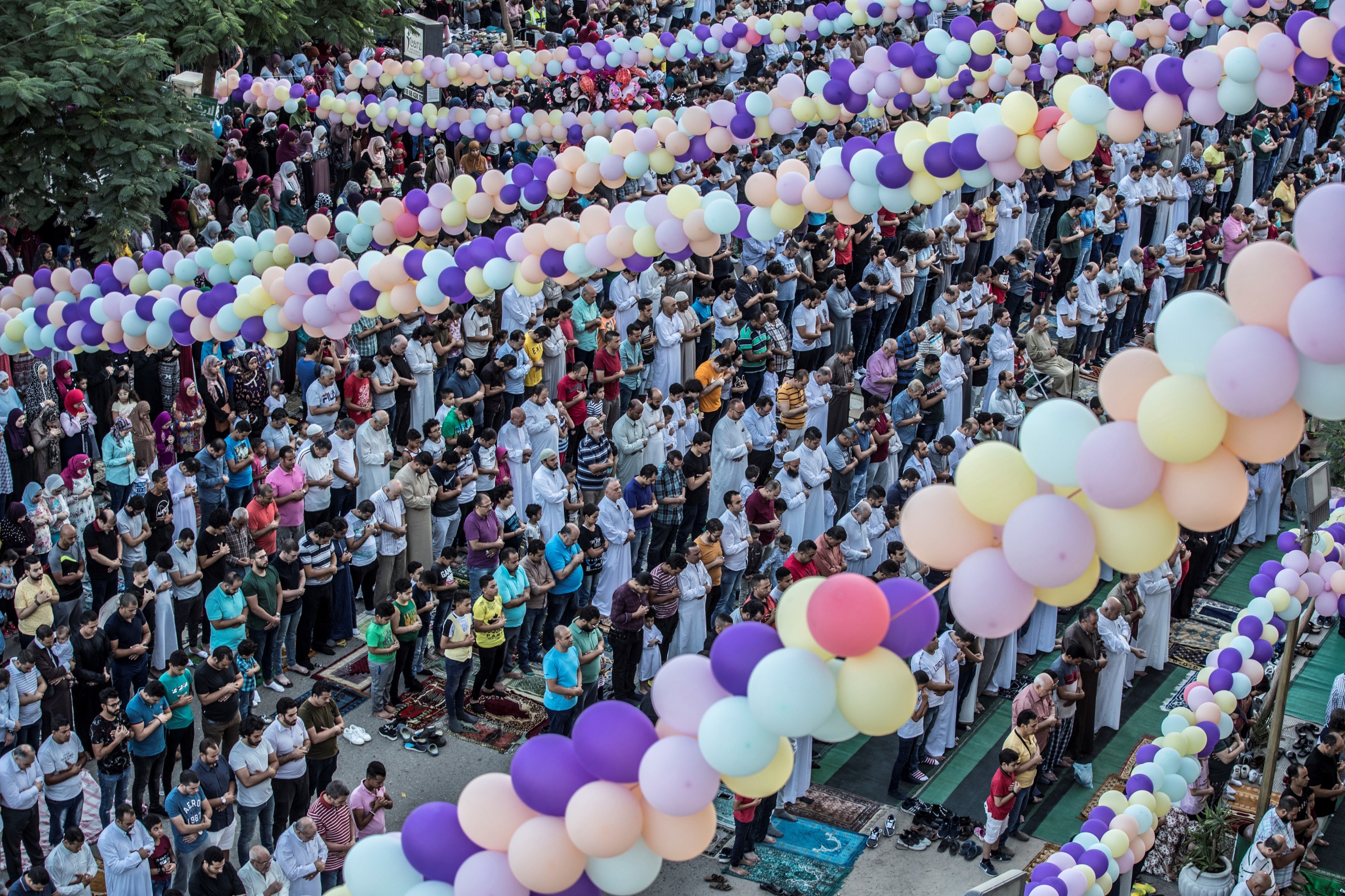
As the month of Ramadan draws to a close, Muslims will prepare for the Eid al-Fitr celebration, which marks the end of the holiest month in the Islamic calendar.
Muslims all over the world eagerly anticipate Eid al-Fitr, which means “the festival of breaking the fast” because it comes after a month of fasting between dawn and sunset.
Eid is meant to be a jubilant day, with large and widespread celebrations taking place in the Middle East and in Muslim communities around the world.
However, festivities are likely to be subdued this year because of coronavirus restrictions.
Middle East Eye answers key questions about the occasion.
When is Eid 2021?
This year, Eid will be marked on 12 or 13 May, depending on the sighting of the new moon. The date of Eid changes every year, as the Islamic lunar calendar is 11 to 12 days shorter than the solar calendar.
Eid also signals the first day of Shawwal, a new month in the Islamic calendar.
Officials and enthusiasts in Muslim majority countries spend the last nights of Ramadan observing the evening sky in an attempt to sight the new moon and announce the beginning of Eid.
Some countries may celebrate Eid on different days depending on the sighting of the new moon in their country.
Is Eid a public holiday?
Eid is a three-day public holiday in many Middle Eastern countries, such as Egypt, Saudi Arabia and the UAE, as well as places beyond the Middle East, like Indonesia, Pakistan, Malaysia, Afghanistan and Malawi, among others.
Most shops, businesses and organisations may be closed or have altered opening times during the celebration to allow families to celebrate with their loved ones.
Theme parks and other attractions are typically busy, however this year, with a range of restrictions in place to curb the spread of coronavirus, many theme parks and attractions are likely to remain closed.
Despite efforts to make the day so, Eid is not a public holiday in the UK and the US. However, in some areas where there is a high population of Muslims, some business may choose to close or open later in the day.
Some Muslims may request to take the day off in order to spend it with their close friends and family.
How will Covid-19 impact celebrations?
Eid comes after Ramadan, the holy month of fasting, and is meant to be a time of festivities and fine eating.
Typically, early morning congregational Eid prayers are held in mosques, community centres and outdoor spaces. It’s one of the busiest times of the year for Muslims: in many parts of the Middle East, mosques fill up with worshippers. It’s not unusual for streets and parks to be lined with prayer mats and speakers to be placed outside to cater for the overflow of people.
However, this year many will pray at home because of mosque closures as a result of the pandemic.
In the UK, current government and local authority guidance does not allow for outdoor congregations in public spaces.
In Egypt, a surge in Covid-19 cases and fears of a third wave of the pandemic has meant that the government has introduced new restrictions ahead of Eid. According to local media, a two-week reduction of hours for the opening of commercial and entertainment venues will be put in place. All public gatherings, entertainment shows and mass activities will also be completely banned in the two-week period.
In Turkey, Eid will come amid a national lockdown as cases have continued to rise. The country will remain in lockdown until 17 May. Many small business owners have been severely hit by the lockdown, and the consequent economic losses.
Religious officials in Morocco have recommended that people should do their Eid prayers at home, as the current Covid-19 state of emergency is predicted to extend past Eid al-Fitr.
Some mosques in the UK have employed an online booking system, to ensure that the number of worshippers allowed inside buildings are capped to allow for social distancing.
Guides shared by mosques also advise worshippers to pray at home if possible, however if they wish to pray in a mosque they should be wearing a protective mask and bring their own prayer mat.
Many Muslims may miss out on the Eid khutba (sermon) this year, and greeting their fellow believers with “Eid Mubarak” which means “have a blessed Eid” in Arabic.
Another common greeting on Eid is "Rabena yetaqabal" ("may God accept") in reference to fasting and extra worship during Ramadan or “Eid sa’eed” which translates as “happy Eid”.
The Muslim Council of Britain, a UK-based umbrella organisation that represents Muslims around the country, has advised worshippers to avoid hugging others, parties and to get permissions from local councils for any planned events.
What are some Eid traditions?
Every country and every family celebrates Eid differently, but there are some key festivities that are common.
Eid is meant to be a time of celebration and spending quality time with family and friends. Typically, Muslims will wear new clothes, either traditional dress or the best clothes that they own.
Homes are decorated elaborately and intricately to welcome the occasion.
People will visit others and spend time with family and friends throughout the day, often exchanging gifts. However this year, many countries have enforced curfews to avoid the spread of the virus.
This year, celebrations are likely to be muted and spent at home, with a lot of places closed or with reduced opening hours.
One key tradition is for adults to give younger members of the family an “eddeya” or sum of money as a present. Children will excitedly tear open envelopes to spend their money on their Eid festivities.
It is also traditional to visit the sick, give to charity and pay respects to those who died and collect presents for those who have lost loved ones, especially orphans.
With hospital visits restricted, and fears over the spread of the virus, many Muslims will not be able to take part in some of these traditions. Instead, most people will have to resort to celebrating Eid virtually, by calling their friends and family members.
How much money do Muslims give to charity?
One of the key elements of Eid is Zakat al fitr, meaning “charity of breaking the fast", which must be paid before the end of Ramadan or Eid prayers.
This form of charity is intended so that the less fortunate can also enjoy Eid. It is obligatory upon Muslims, and stems from one of the five pillars of Islam, Zakat, which requires Muslims to give charity to help their communities and to strengthen their spiritual relationship with God.
Zakat al-fitr is a one-off payment, usually in the form of food or its monetary equivalent to the value of about £7 ($9) which allows the less fortunate to celebrate Eid.
The donation is intended to absolve the donor from any shortcomings they committed during the holy month and act as a form of thanks to God for allowing observance of the fast.
All Muslims must pay this amount, regardless of age or gender, so long as they possess enough to feed themselves. The head of the family will pay on behalf of any children or dependants.
With the pandemic impacting people and businesses around the world, Muslims have been encouraged to help the less fortunate, particularly in disaster-stricken parts of the world. Towards the end of Ramadan, many charities will run virtual fundraising campaigns to raise money for those in need.
What do people eat at Eid?
After a month of fasting everyday, it’s no surprise that Eid largely centres around food. The most decadent and lavish spreads are typically on offer.
One quintessential treat is kahk, a sugar cookie with a shortbread-like texture that can have many different fillings, such as date paste, mixed nuts, agameya (ghee, honey, sesame seeds) and Turkish delight, dusted with icing sugar. It can also be left plain with no filling.
Baking kahk is a key social activity in the Middle East, as families gather the night before Eid to cook and decorate while bakeries are inundated with orders. In Egypt, kahk is so beloved that people have renamed the festival Eid al-kahk, meaning “celebration of kahk”.
Another favourite is qatayef, a fluffy golden brown pancake stuffed with sweet cream and nuts and doused in syrup.
Finally there is kunafa, the hallmark dessert of the Middle East, which is eaten copiously. Those more adventurous experiment with this sweet and syrupy dessert, adding different toppings including fruit and nuts to chocolate and cream.
Usually, families will spend Eid visiting other relatives and friends, and taking gifts and food over However, with Covid-19 restrictions still in place, many people will spend Eid alone or with immediate family.
Why are there two Eids? What’s the difference?
Eid al-Fitr, as explained above, comes at the end of Ramadan and celebrates the breaking of the fast.
Eid al-Adha, which means "festival of the sacrifice" is approximately two months after Eid al-Fitr and is culturally considered a bigger event. It coincides with the Islamic pilgrimage to Mecca in Saudi Arabia, known as Hajj, which every Muslim is expected to undergo at least once during their lifetime, if they are physically and financially able.
Middle East Eye propose une couverture et une analyse indépendantes et incomparables du Moyen-Orient, de l’Afrique du Nord et d’autres régions du monde. Pour en savoir plus sur la reprise de ce contenu et les frais qui s’appliquent, veuillez remplir ce formulaire [en anglais]. Pour en savoir plus sur MEE, cliquez ici [en anglais].


